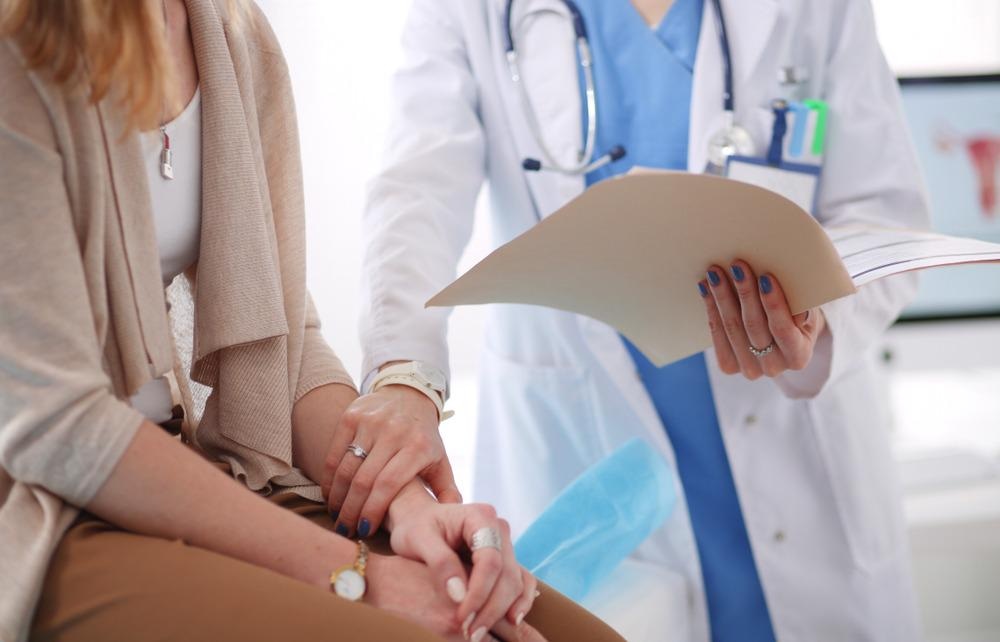Various self-reporting and population studies have been conducted on the illness trajectory of patients who have recovered from the coronavirus disease 2019 (COVID-19). These studies have reported the persistence of certain residual symptoms that lead to increased demands on healthcare services.
At the start of the COVID-19 pandemic, there was a lack of clinical studies that evaluated the pathogenesis and/or health status of these patients. As a result, the pathophysiology and clinical significance of post-COVID-19 syndromes remain largely unknown.
 Study: A multisystem, cardio-renal investigation of post-COVID-19 illness. Image Credit: S_L / Shutterstock.com
Study: A multisystem, cardio-renal investigation of post-COVID-19 illness. Image Credit: S_L / Shutterstock.com
Background
Multi-organ inflammation in COVID-19 may be due to several distinct mechanisms such as direct virus invasion through its binding to the angiotensin-converting enzyme 2 (ACE2) receptor, thrombotic microvascular angiopathy, cardio-renal inflammation, stress cardiomyopathy, endothelial dysfunction, and drug toxicity. Longer morbidity and mortality may also arise in these patients as a result of myocarditis.
Although previous studies have reported myocardial inflammation in 27-60% of COVID-19 patients, these estimates are considered to be unrepresentative. The lack of coronary artery imaging is another limitation in determining the cause of myocardial injury in these patients.
A new Nature Medicine study utilizes multisystem imaging, along with biomarker analysis, to better understand the pathogenesis of COVID-19. Any changes in these clinical findings were analyzed over short and medium terms, which were defined as less than three months and between 12 and 18 months, respectively.
The current study also adopted three hypotheses, the first of which included the association of hemostatic pathway activation and systemic inflammation during convalescence with post-COVID-19 syndromes. The second hypothesis was that cardio-renal involvement is associated with pre-existing cardiovascular disease, whereas the third hypothesis was that myocarditis following COVID-19 is associated with persistent impairments in health status.
About the study
The current study involved a cohort of multi-organ injury survivors of COVID-19 during convalescence. Clinical information, blood and urine outcomes, a 12-lead digital electrocardiogram (ECG), as well as patient-reported outcome measurements were collected at enrolment (visit 1) and 28 to 60 days after discharge (visit 2).
Chest computed tomography (CT) scans were also obtained during visit 2. Analysis of cardiovascular and renal magnetic resonance imaging (MRI) was also conducted.
Participants who were 18 years of age and older, hospitalized with confirmed COVID-19, able to comply with study procedures, and able to provide written informed consent were included in the study. Thereafter, the diagnosis of COVID-19, myocardial injury, and acute kidney injury (AKI) was carried out.
A control group of 29 participants who closely represented the characteristics of the study population were also included. Blinding measures were implemented to reduce bias.
Taken together, primary, secondary, health status, and patient-reported, as well as longitudinal follow-up outcomes, were determined.
Study findings
Out of 1,306 patients, 159 were evaluated at follow-up, 139 of whom were white, four were Arab, 14 were Asian, and two were Black. A total of 74 patients were reported to have a history of cardiovascular disease or treatment, 61 belonged to the highest level of social deprivation, and 36 were healthcare workers.
In terms of the treatment that these patients received while being hospitalized for COVID-19, 109 patients received oxygen therapy, 42 received antiviral drug therapy, 89 received steroids, 14 received invasive ventilation, and 31 received non-invasive respiratory support.
The healthcare workers were often younger with a lower risk of cardiovascular diseases as compared to non-healthcare workers.
A higher risk of coronary artery disease and myocardial fibrosis was also observed in the post-COVID-19 group as compared to the control group at visit 2. Additionally, circulating concentrations of C-reactive protein, fibrinogen, D-dimers, ferritin, von Willebrand factor, and Factor VIII were higher in the post-COVID-19 group as compared to controls at visit 1.
The incidence of myocarditis was determined to be ‘very likely’ in 21 patients, ‘probable’ in 65 patients, ‘unlikely’ in 56 patients, and ‘not present’ in 17 patients. Myocarditis was also associated with the distribution of coronary atherosclerosis at visit 2.
Furthermore, the likelihood of myocarditis was associated with reduced left ventricular ejection fraction in females and acute kidney injury (AKI). The incidence of myocarditis was also associated with pulmonary fibrosis.
Myocardial inflammation was probable in 14 patients and very likely in seven patients. The incidence of myocarditis was also inversely correlated with HbA1c (mmol/mol).
Moreover, patients with COVID-19 were reported to have enhanced illness perception, lower quality of life, lower levels of physical activity, higher levels of anxiety and depression, and lower levels of oxygen utilization.
A total of four patients died during the study period, whereas 24 post-COVID-19 patients and two control patients died or were rehospitalized. Several patients were diagnosed with long-COVID-19 and required outpatient secondary care.
Conclusions
The current study determined that the illness trajectory of COVID-19 includes persistent cardio-renal inflammation, hemostatic pathway activation, lung involvement, and impairments in physical and psychological function. Several patients required outpatient secondary care, while one in seven patients died or were rehospitalized.
Taken together, additional studies on the prognosis and preventative therapies for post-COVID-19 syndromes are still urgently needed.